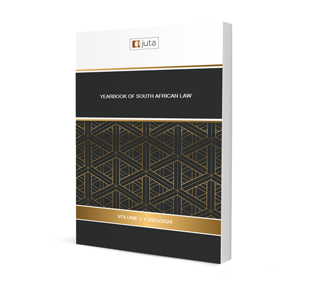Criminal Procedure and Sentencing

Criminal Procedure and Sentencing
Author Cerita Joubert
ISBN: 978 148515 163 0
Affiliations: BIuris LLB (SA) LLM (Leiden) Dip: Police Admin (Technikon SA); Practising Advocate, Pretoria
Source: Yearbook of South African Law, Volume 5, p. 344 – 371